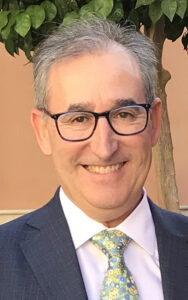
Title: Approximating the dynamics of a stochastic PDE model by using colored noise
Abstract: The theory of Random Dynamical Systems is nowadays very well developed and provides an appropriate framework to describe the pathwise dynamics of a good number of interesting stochastic PDE models from applied sciences. The main idea is to transform the stochastic problem into a random one by performing some kind of transformation (also called conjugation) which allows us to use the deterministic techniques to analyze the long time behavior of the system. However, when the noise term in the stochastic model is not linear, such conjugation is not known yet when we are dealing with a stochastic partial differential equation. Recently, a new technique is being used to approximate the stochastic problem. The idea consists in replacing the standard white noise (usually the generalized derivative of a Wiener process) but the so-called colored noise, which is a stationary stochastic process (generally an Ornstein-Uhlenbeck process) and strongly related to the Wong-Zakai approximation to the white noise. In this talk, we will analyze a problem driven by colored noise and explain the advantages of Wong-Zakai approximations, and the limitations of this alternative as well.
Bio: Dr Tomás Caraballo is Professor at the Departamento de Ecuaciones Diferenciales y Análisis Numérico of the University of Sevilla, Spain. Professor Caraballo received his Ph.D. in Mathematical Sciences from the University of Sevilla in November 1998. His research interests include deterministic and stochastic dynamical systems and applications from the applied sciences. More specifically, he was worked on stochastic partial differential equations, models with delay and memory, impulsive systems, non-autonomous and random dynamical systems, nonlocal differential equations including those of fractional time, models from biology, epidemiology, physics, population dynamics, etc He has published more than 350 papers so far, which can be seen in the web.